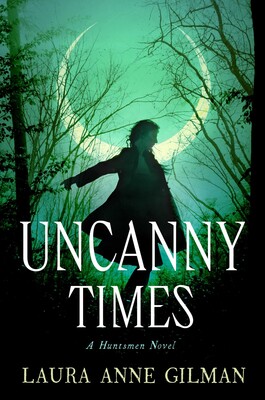In the three years we’ve not only dealt with a global pandemic, but I came brick-wall-to-face with my mortality in the shape of a nasty little tumor. You’d think something like a new book coming out wouldn’t even register on my stress-o-meter.
And yet. If you thought that, you’d be wrong.
As I write this, we’re in the countdown to my new book – UNCANNY TIMES launches on October 18th.
Countdown. Launch. They’re apt terms – because like any launch, the seconds, minutes, hours – and in a book’s case, weeks – ticking down are fraught with tension. Anticipation, yes, but also hyper-aware of every. single. way. things can go wrong.
The emotional swing goes something like this: you’re proud of what you’ve done and also wondering if anyone is going to like your offering. You’re clinging to the positive early reviews, while trying not to take the bad ones to heart. You’re hoping that you are doing the right things in terms of promotion, while trying not to stress over the things you can’t do, trying not to notice what other people are doing that look better than what you’re doing. And through all this, while acknowledging that the odds are always against you, you’re nurturing that tiny nugget of a seed of hope that this will be the breakout book – while also not letting your expectations set you up for disappointment.
It’s a therapist’s playground in our heads, really. I mean, all the time, but particularly now.
The first few launches, most writers try to cover the board, push every button, flip every switch, touch everything on the off chance that one of those things will be The Secret to success. And then time and experience lay the heavy truth on you: we can’t control any of this. We can only do what we can do, time/energy/finances allowable, and let the rest happen as it will.
And often, it won’t.
I’m looking back over what I’ve written and my god, that all sounds depressing as hell, doesn’t it? Send chocolate and CBD (where legal by state law). And yet.
And yet.
For all the fraught-ness of the countdown, for all the ways that launch can and probably will fail, I’ve found that the countdown is also that magical phase of absolute possibilities, when the work is been done and what you have left is hope. For a brief shining moment, all the success in the world is waiting for you. It’s a gift. Wallow in it.
And then, when you can’t stand it any more, there’s one more thing. Work. Because in the midst of the countdown, there’s another countdown going on as well: your deadline for the next book.
And the chance to begin the countdown to launch all over again next year.


 Book Launch Today — Collaborators by Deborah J. Ross
Book Launch Today — Collaborators by Deborah J. Ross